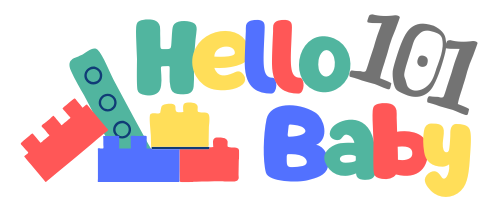You might wonder how to bond with newborn mother and baby, especially if it does not feel natural straight away.
Many mums feel worried or anxious about this, and you are not alone. Studies show that bonding challenges affect a wide range of mothers, with postpartum anxiety often making things harder.
Some mothers connect with their baby instantly, but for others, this bond grows slowly over weeks or months. Both ways are normal. Every step you take helps build a loving connection.
Key Takeaways
- Bonding with your baby helps them feel safe and loved. It also helps them feel confident. This supports their feelings and how they get along with others.
- Simple things like skin to skin contact and eye contact help. Gentle touch and answering your baby’s signals also build a strong bond.
- Feeding time is a special chance to bond. You can bond while breastfeeding or bottle feeding. Being close and paying attention helps you connect.
- Many mothers find bonding hard at first. Be patient and kind to yourself. Getting help from others can really help.
- Every small act of love and care matters. Bonding grows slowly over time. You are not alone in this journey.
Why Bonding Matters
Emotional Benefits
Bonding with your baby creates a close feeling between you. This connection is important for both of you. It helps your baby feel safe and loved.
Spending time together helps your child feel happy and confident. Early bonding helps your baby’s emotions in many ways:
- You help your baby explore and feel safe.
- Cuddling and smiling help your baby trust you.
- Babies who feel close to their mothers are often happier.
- Good bonding helps your child make friends and be strong.
- Caring for your baby early can stop behaviour problems later.
- Looking after your feelings helps your baby grow well.
- The love you give now helps your child deal with stress later.
Tip: Every cuddle, smile, and kind word matters. Even small things help your baby feel safe and loved.
Physical Wellbeing
Bonding is not just about feelings. It also helps your baby’s body and health. Holding your baby close, especially skin to skin, is good for both of you.
Here are some important findings from research:
| Study / Source | Physical Health Outcomes | Key Findings |
|---|---|---|
| Cooijmans et al. | Faster growth, better health, more sleep, less crying, less worry for mums | Five weeks of skin to skin made babies grow faster and cry less. Mums felt calmer. |
| Moore et al. | More breastfeeding, better heart and breathing, higher blood sugar in preterm babies | Early bonding helped babies breastfeed longer and stay healthy. |
| de Chateau | More affection, less crying | Extra skin to skin made babies smile more and cry less. |
| Dumas et al. | More feeding, gentler care from mums | Staying close helped mums feed more and be kinder. |
Simple things like holding your baby, looking at them, and answering their needs help you both. These moments help your baby grow, sleep better, and feed more easily. Your touch and care really matter.
How to Bond with Newborn
Building a strong connection with your baby can feel overwhelming at first. You might wonder how to bond with newborn mother and baby in ways that feel natural and meaningful.
The good news is, there are many simple things you can do every day to help your bond grow. Let’s look at some of the most effective ways to connect with your little one.
Skin to Skin
Skin to skin contact is one of the best ways to start bonding. When you hold your baby against your bare chest, you help them feel safe and warm. This closeness calms both of you.
Your baby learns your scent, heartbeat, and voice. Studies show that skin to skin contact right after birth helps babies cry less, sleep better, and feed more easily. It also helps you feel more relaxed and confident as a mum.
You don’t have to limit skin to skin to the first hour after birth. You can do it any time—after a bath, before a nap, or whenever you want to comfort your baby. The more often you practise skin to skin, the stronger your bond will become. Even short sessions make a difference.
Tip: Try skin to skin in the morning or after a bath. Let your baby rest on your chest with a blanket over both of you. There’s no perfect amount of time—just do what feels right for you and your baby.
Eye Contact
Looking into your baby’s eyes is a powerful way to connect. Babies love to gaze at faces, especially yours. When you make eye contact, you help your baby feel noticed and loved.
Smiling and talking softly while you look at your baby encourages them to respond. This back and forth helps your baby learn about emotions and trust.
Research shows that eye contact, along with your smile, acts as a reward for your baby. It helps them feel happy and secure. These moments of connection support your baby’s social and emotional growth.
Responding to Cues
Your baby communicates with you from the very start. They might root for milk, yawn when tired, or cry when they need comfort.
Learning to spot these signals is key to understanding how to bond with newborn mother and baby. When you respond quickly and gently, your baby learns that you are there for them.
Mums who notice and answer their baby’s cues help build trust. This trust forms the foundation for a secure attachment. You don’t have to get it right every time. What matters is that you keep trying and stay tuned in to your baby’s needs.
Note: Babies thrive when you respond to their cries and signals. Comforting your baby does not spoil them—it helps them feel safe.
Feeding and Comfort
Feeding time is a special chance to bond, whether you breastfeed or bottle feed. Holding your baby close during feeds lets them feel your warmth and hear your heartbeat.
This closeness helps you notice early hunger cues, like rooting or sucking on their hands, so you can respond before they get upset.
Physical contact during feeding supports your baby’s comfort and helps you feel more connected. Feeding is not just about nutrition—it’s also about sharing love and security. Both breastfeeding and bottle feeding can help you build a strong bond.
Tip: Use feeding time to talk, sing, or simply enjoy quiet moments together. Let your baby set the pace and watch their cues.
Gentle Touch
Touch is a powerful way to show love. Gentle stroking, cuddling, and baby massage all help your baby feel calm and secure. Massage can boost your confidence as a mum and even improve your mood if you feel low. It also releases oxytocin, the “love hormone,” which deepens your connection.
You don’t need special skills to give your baby a gentle massage. Use soft, slow movements and pay attention to how your baby reacts. Some babies love massage, while others prefer gentle cuddles or being rocked.
- Massage helps your baby relax and sleep better.
- It encourages non verbal communication between you and your baby.
- Touch creates shared happy moments and builds trust.
Note: If you’re not sure how to start, many health visitors or local groups offer baby massage classes.
Other Ways to Bond
There are many other ways to discover how to bond with newborn mother and baby:
- Spend quality time together, even if it’s just a few quiet minutes.
- Talk, sing, or read to your baby. Your voice is soothing and familiar.
- Use facial expressions and playful sounds to make your baby smile.
- Try babywearing. Carrying your baby in a sling or carrier keeps them close and helps you respond to their needs.
- Let your partner or family members help with cuddles, feeds, or nappy changes. This support gives you more time to focus on bonding and helps your baby build trust with others.
Remember: Every small moment counts. There is no single right way to bond. What matters most is showing love and being present with your baby.
Baby’s Cues
Recognising Signals
Your newborn has many ways to tell you what they need. You might notice these signals in their face, body, or sounds.
Learning to spot these cues helps you understand your baby and makes daily life easier. Here are some common ways babies communicate:
- Tactile responses: Your baby enjoys gentle touch, cuddling, and rocking. Stroking their hands, feet, or cheeks often calms them.
- Feeding cues: Rooting, sucking on fists, or smacking lips usually means your baby feels hungry or ready to feed.
- Crying: Babies cry for many reasons—hunger, discomfort, pain, or just needing a cuddle. Each cry can sound a bit different.
- Facial expressions: A furrowed brow, wide eyes, or a little smile can show how your baby feels.
- Body movements: Fidgeting, squirming, or arching the back might mean your baby feels uncomfortable or wants attention.
- Sleep cues: Yawning, fussiness, or staring off into space often signal tiredness.
You might also notice your baby responds to your smell and voice. By six days old, most babies know their mother’s scent and prefer it.
Watching for these signs helps you learn how to bond with newborn mother and baby in a way that feels natural.
Tip: Try to observe your baby during calm, quiet times. You’ll start to see patterns in their behaviour and learn what each signal means.
Responding Positively
When you notice your baby’s cues, responding with warmth and care builds trust. You don’t need to get it perfect every time. What matters is that you try to meet your baby’s needs in a gentle way.
Here’s how you can respond positively:
- Watch for signs of comfort or distress. If your baby turns away or seems overstimulated, give them a break.
- Use your voice to soothe or engage. Soft singing can help your baby sleep, while gentle talking supports quiet, alert moments.
- Adapt your approach. Some babies need more quiet, while others enjoy more interaction. Preterm babies may need extra care and softer voices.
- Make feeding a social time. Notice hunger and fullness cues, and enjoy the closeness.
- Take care of yourself. Deep breathing or a short break can help you stay calm and respond with patience.
Research shows that when you respond sensitively, your baby feels safe and learns to trust you. This supports their brain, language, and social development.
Programmes that teach mums to notice and answer cues—like watching videos of your own interactions—can make a big difference, especially if you feel anxious or unsure.
Every positive response, no matter how small, helps your baby feel loved and secure. Over time, you’ll grow more confident in how to bond with newborn mother and baby.
Overcoming Challenges
Common Difficulties
You might expect bonding to happen straight away, but for many mothers, it takes time. In fact, studies show that between 7% and 11.3% of mothers in the general population experience delays or struggles with bonding. In some clinical settings, this number can reach up to 25%.
You are not alone if you feel distant, anxious, or even frustrated. Sometimes, you might notice feelings of guilt or worry because society often says bonding should feel instant. This pressure can make things harder.
Many mothers face challenges such as tiredness, pain after birth, or worries about their own health. Mental health plays a big part too. Postnatal depression and anxiety can make it tough to connect with your baby.
These feelings might change how you see your baby’s behaviour, making bonding feel even more difficult. If you have experienced loss or trauma before, you might find it even harder to relax and enjoy time with your newborn.
Other common barriers include:
- Lack of advice or support from healthcare staff
- Feeling embarrassed to talk about bonding problems
- Staff shortages or time pressures in hospitals
- The myth of the ‘perfect parent’ making you feel like you cannot ask for help
Note: If you feel overwhelmed, remember that many mothers share these feelings. It is okay to ask for support.
Support and Reassurance
You can take small steps each day to build your bond. Try skin to skin contact, gentle touch, or talking softly to your baby. These moments matter, even if they feel small.
Peer support groups can help you feel less alone and give you a safe space to share your worries. Many mothers find that talking to others who understand makes a big difference.
If you feel stuck or low, reach out to your GP, midwife, or health visitor. They can offer advice and connect you with support services.
Home based therapy and group sessions have helped many mothers feel closer to their babies and improve their mood. Your partner, friends, or family can also support you by giving you breaks or helping with daily tasks.
Tip: Bonding is a journey, not a race. Every cuddle, smile, and shared moment counts. If you want to know how to bond with newborn mother and baby, remember that patience and kindness to yourself are key.
If you notice strong feelings of sadness, anger, or disconnection that do not go away, it is important to seek professional help. Early support can make a big difference for both you and your baby.
Bonding with your baby happens slowly and is different for each mum. Studies show this connection can begin during pregnancy and keeps changing as you look after your baby.
Some mums feel close to their baby straight away. Others need more time for their bond to grow. Both ways are normal. Every time you cuddle, smile, or speak gently, it helps.
Remember, you do not have to do this by yourself.
There is always help if you need it:
- NSPCC gives tips, helplines, and advice.
- Fleet and Family Support has guides for new mums.
- Healthy Parents Healthy Babies links you to support and community help.
Be gentle with yourself. Your journey is special, and every small effort matters.
FAQ
How long does it take to bond with my newborn?
Every mum’s journey is different. Some feel a strong bond straight away. Others need weeks or months. You might notice your connection growing with each cuddle, feed, or smile. Give yourself time. Your bond will build with daily care and love.
Can I bond with my baby if I bottle feed?
Absolutely! You can bond during bottle feeding by holding your baby close, making eye contact, and talking softly. Feeding is about comfort and closeness, not just milk. Your loving touch and attention matter most.
What if I don’t feel a bond yet?
You are not alone. Many mums feel this way at first. Try skin to skin contact, gentle touch, or singing to your baby. Small moments help. If you feel worried or sad for a long time, talk to your health visitor or GP.
Do dads or partners help with bonding?
Yes, partners play a big role. They can cuddle, feed, change nappies, and talk to the baby. This support helps your baby feel safe and gives you a break. Sharing care builds trust for everyone.
Will my baby remember these early bonding moments?
Your baby might not remember each moment, but these early experiences shape how they feel safe and loved. Your gentle care helps their brain and emotions grow strong. Every cuddle and smile makes a difference.



